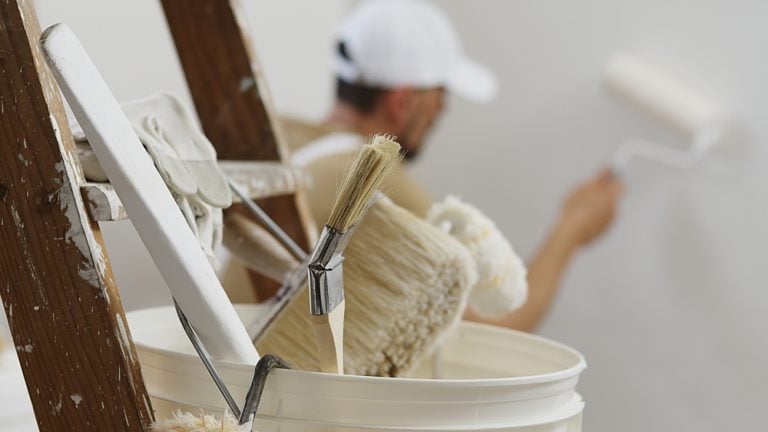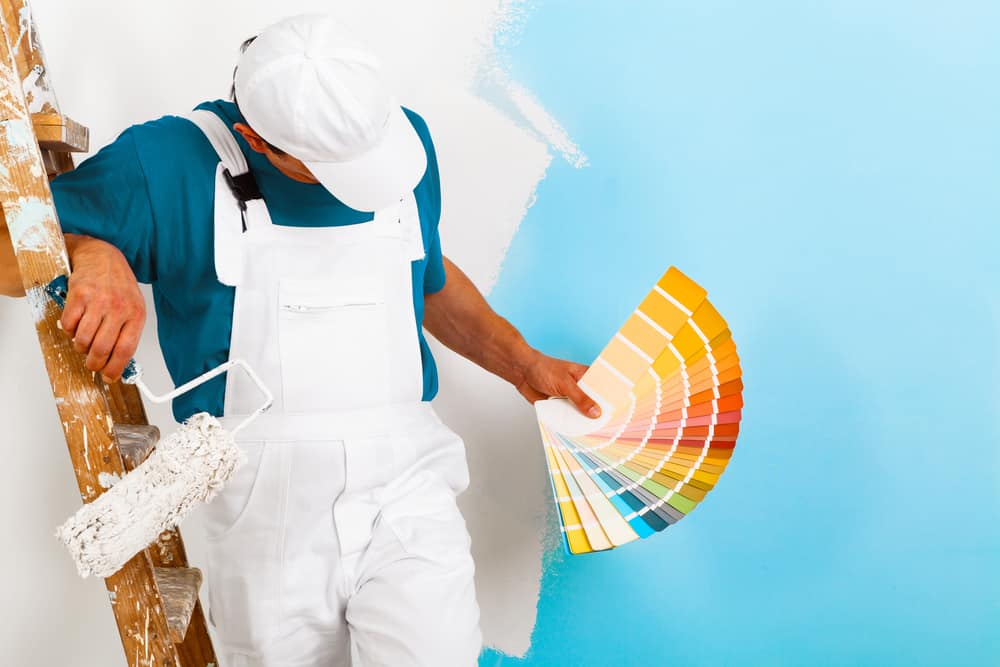Experience the Difference with Our Unique Offerings
Rooted in strong values and a commitment to exceptional service, Metanoia Construction is your trusted family-owned partner.
From caulking to specialty coatings, we offer a wide range of services for residential and commercial clients.
Our 20+ years of experience guarantees excellence and seamless project execution.

Discover the difference with Metanoia Construction Inc, your trusted partner for interior painting services in Morton Grove, IL. With a passion for transforming homes and increasing their value, we take pride in every stroke of our brushes. Our dedicated team is ready to bring your vision to life. Contact us today at 630-626-8828 and let our interior painting services elevate your Cook County home’s appeal. Don’t miss the opportunity to add value and beauty to your property.
Our team offers expert guidance in selecting the perfect color schemes to suit your style and enhance your Morton Grove, IL home.
We ensure a smooth and durable finish by meticulously preparing surfaces before painting, guaranteeing a long-lasting transformation.
Enjoy a hassle-free experience as we leave your space immaculate, delivering not just beautiful walls but also a clutter-free environment.

If you’re a homeowner in Morton Grove, IL, you understand the importance of maintaining and enhancing the value of your property. One effective way to achieve this is by investing in professional interior painting services. At Metanoia Construction Inc, we take pride in transforming homes through our expert painting solutions. Here’s how our interior painting services can significantly boost the value of your Cook County home.
When it comes to improving the value of your home, first impressions matter. A freshly painted interior not only looks beautiful but also creates a positive impression on potential buyers or visitors. Our skilled painters at Metanoia Construction Inc are experts at selecting the right colors and finishes to enhance the visual appeal of your home’s interior. Whether you prefer a classic, modern, or unique style, we can help you achieve the perfect look that suits your taste and increases your home’s value.
Investing in professional interior painting services is an excellent way to increase the market value of your Morton Grove, IL home. Potential buyers are often willing to pay more for a well-maintained and visually appealing property. By choosing Metanoia Construction Inc, you’re making a smart investment that can yield a higher resale value in the future.
Apart from aesthetics and market value, our interior painting services can also contribute to a healthier living environment. Our eco-friendly paint choices not only add a touch of elegance but also improve indoor air quality by reducing the presence of harmful pollutants. This can be a significant selling point when you decide to put your Morton Grove, IL home on the market.
Over time, the interior walls of your home can experience wear and tear due to daily activities, including scuffs, stains, and fading. Our interior painting services provide a protective layer that helps prevent such damage. This added protection can extend the life of your walls and reduce maintenance costs, making your home more attractive to potential buyers in Cook County.
One of the key advantages of hiring Metanoia Construction Inc for your interior painting needs is the opportunity to personalize your living space. Our experienced team can work with you to choose the right color schemes and design elements that reflect your unique style and preferences. Whether you’re preparing your home for sale or simply want to enjoy a more comfortable living space, our interior painting services can help you achieve your goals.

Ready to enhance the value and appeal of your Morton Grove, IL home? Contact Metanoia Construction Inc today at 630-626-8828 to schedule a consultation with our professional painters. With our expertise and commitment to excellence, we are your go-to choice for expert interior painting services in Cook County.
Don’t miss out on the opportunity to transform your home and boost its value. Trust Metanoia Construction Inc for all your interior painting needs in Morton Grove, IL. We look forward to working with you!
A handful of farmers from England settled in 1830-1832, despite there being no roads from Chicago, only native American trails, as the defeat of the Black Hawk War and the Treaty of Chicago led Native Americans to leave the areas. Farmers from Germany and Luxembourg started arriving by the end of the decade, clearing the land by cutting the walnut, oak, hickory, elm and maple trees. Logs were initially hauled to a sawmill at Dutchman’s Point (later Niles, Illinois) at the corner of what became Milwaukee, Waukegan and Touhy Avenues, and stumps burned for charcoal that could then be hauled to heat homes in expanding Chicago. Immigrant John Miller erected a water-powered sawmill near where the Chicago River met the future Dempster Street shortly after 1841. This simplified homebuilding in the area, as well as facilitated further lumber sales. A road (first known as Miller’s Mill Road and after 1915 as Lincoln Avenue) allowed wood from the sawmill (and produce from nearby farms) to be hauled to the largest settlement in the surrounding Niles Township (initially known as Niles Center and now Skokie) or even further, into Chicago. Around 1850, the “Northwestern” road to/from Chicago (now known as Milwaukee Avenue) was improved (partly using lumber from Miller’s sawmill) to become a single lane plank (toll) road. That reduced a four-day journey into Chicago to about a half day, and also helped sales of produce and farm products from the rich bottomland. Lumber was also hauled to Jefferson Park to fuel locomotives after the first railroads were built in the area. In 1858, Henry Harms built a toll road from the intersection of Ashland and Lincoln Avenues in Chicago to Skokie, where it met Miller’s Mill Road. Harms’ Road was later extended through Glenview.
In 1872, the Chicago, Milwaukee and St. Paul Railroad bought Miller’s Mill and laid track (which became two lines in 1892). They also dug gravel for railroad and road use nearby, creating a quarry at what later became Austin Park. The stop (later station) at what had been Miller’s Mill was named Morton Grove to honor one of the railroad’s New York financiers, Levi Parsons Morton. The Morton Grove settlement began growing from about 100 persons, and by 1874 had grown enough to have its first postmaster, Civil War veteran Medard Lochner. Rural mail service started 21 years later, although a blacksmith shop was opened at the settlement by 1884, and a trading post and saloon had operated since 1847. The first subdivision (177 lots) was platted by real estate developers George Fernald and Fred Bingham in 1891, and a convalescent home for German-American aged was built in 1894. The village formally incorporated on December 24, 1895, just eight days before Morton became the Governor of New York. Morton Grove’s first mayor, George Harrer, was of German descent (and became the namesake of the village’s largest park), and his brother became Skokie’s mayor.
The first greenhouses were built in Morton Grove in 1885 (the railroad transported 135,000 tons of coal annually to heat them in cold weather), and the Poehlman Brothers’ floral business grew into one of the world’s largest floral firms, receiving international recognition when one of its roses won first place at the 1904 St. Louis World’s Fair. The orchid department alone included eight greenhouses, and the nearby railroad station received flowers from the Philippines and South America to service customers with more exotic tastes. By 1915 the Poehlman Brothers’ payroll included 400 to 500 people. However, the business went bankrupt in the Great Depression. Baxter Laboratories bought much of the former Poehlman land, and became a major employer in the following decades. The 20 acres (8 hectares) of land surrounding Greenhouse C was purchased by the Morton Grove Days Committee and ultimately became Harrar Park. Lochner’s and the wholesale firm Platz Flowers (retail business name “Jamaican Gardens”) continue to operate in the village. August Poehlman long served as one of Morton Grove’s six trustees (and as its second mayor), and his brother Adolph was the village attorney.
Learn more about Morton Grove.